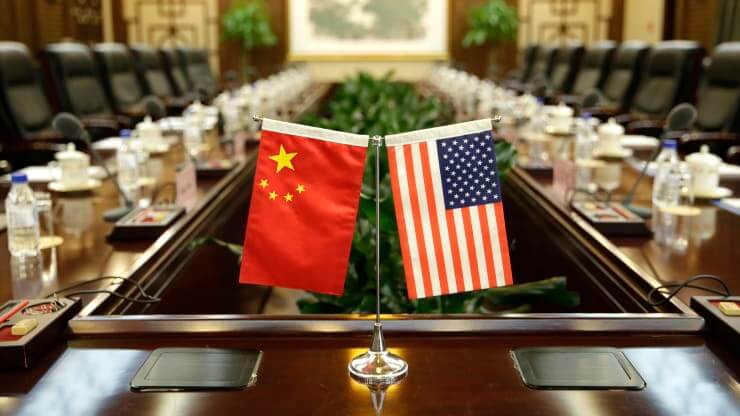The World Trade Organization (WTO) said on Tuesday that the United States (US) violated global trade guidelines when it imposed more than $200 billion in additional tariffs on Chinese goods in 2018, which Washington said was in response to China’s unfair trading practices.
A 3-person trade expert panel, however, sided with Beijing who had complained that President Donald Trump’s administration broke several international rules by doing so, including a provision that requires all WTO member states to offer equal tariff rates among the body’s trading partners. Since 2018, US tariffs on Chinese exports have gone up to almost $400 billion.
“The United States has not met its burden of demonstrating that the measures are provisionally justified,” the panel said in a report. The panel also said that the group was “very much aware of the wider context in which the WTO system currently operates, which is one reflecting a range of unprecedented global trade tensions.”
Although the ruling is a blow to the Trump administration’s trade war against China, experts have said that, in reality, it may have little practical effect, given that the US has blocked all new appointments to the WTO’s dispute resolution court, essentially rendering it non-functional. James Bacchus, former chief judge of the WTO appellate body, told the South China Morning Post that this means that Washington could simply appeal the decision, and member states will be unable to adopt the panel’s report. Bacchus also stressed that since China has already responded to high tariffs by imposing trade sanctions on other US goods, denial of the right to an appeal will also make no real difference to the situation.
Regardless, the ruling gave China an opportunity to showcase itself as a rule-abiding world power, and the US as the belligerent. A Chinese Commerce Ministry spokesperson told reporters that China has “always firmly supported and maintained this cornerstone and respected WTO rules and rulings,” adding that Beijing “hopes that the United States will fully respect the rulings of the expert panel and the rules-based multilateral trading system, take practical actions to meet China and other WTO members, jointly maintain the multilateral trading system, and promote the stable and healthy development of the world economy.”
Meanwhile, US Trade Chief Robert Lighthizer criticized the body, saying that the decision only confirmed the fact that the WTO was “completely inadequate to stop China’s harmful technology practices”, and that it provides “no remedy for such misconduct”. He added that the US “must be allowed to defend itself against unfair trade practices, and the Trump administration will not let China use the WTO to take advantage of American workers, businesses, farmers, and ranchers”.
In other trade-related developments, the US on Monday lifted tariffs on Canadian aluminium, just a few hours before Ottawa was set to announce countermeasures. Last month, Trump announced that he was reimposing a 10% levy on Canadian aluminium imports because it had “taken advantage” of America and “broken its commitment” to stop flooding the US market with cheaper exports. However, the US said this week that it would, instead, impose a quota and reserve the right to reimpose tariffs retroactively if the quota-level was exceeded.
WTO Says Trump’s $200bn Tariffs on China Broke International Trade Rules
Since 2018, US tariffs on Chinese exports have gone up to almost $400 billion.
September 16, 2020

SOURCE: CNBC
